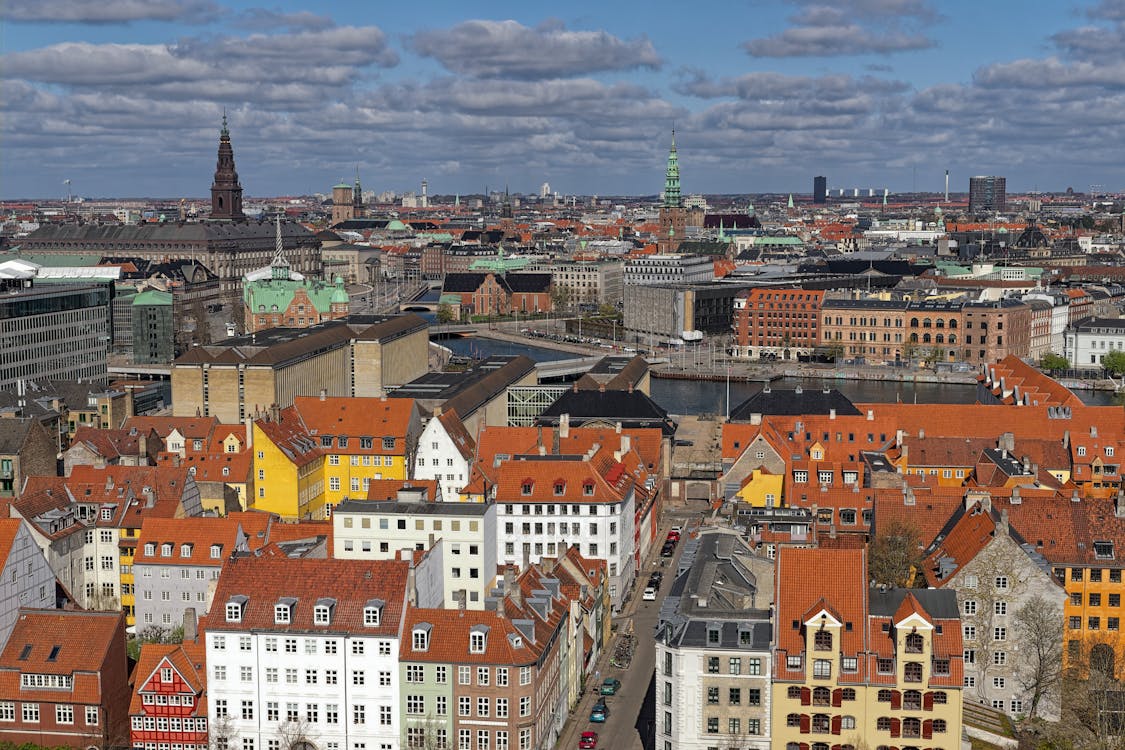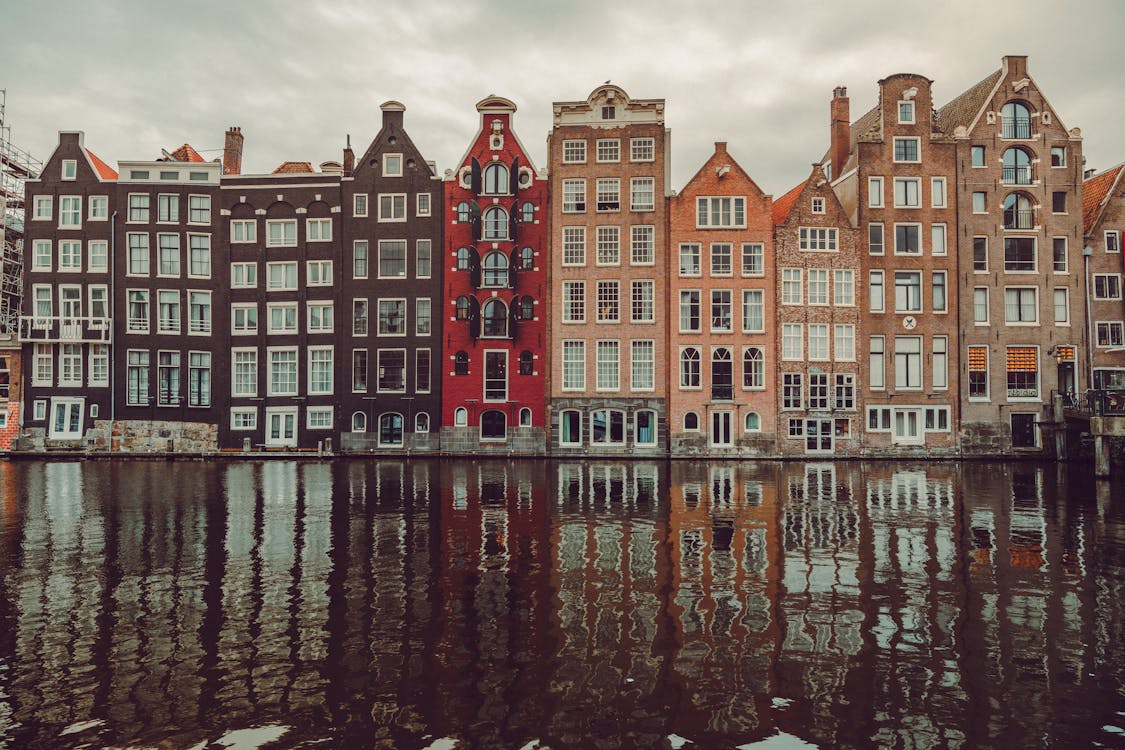Copenhagen is a city full of life, with an excellent quality of life and a great infrastructure, making it a popular place to buy property and settle down.
Compared to other European cities, Copenhagen has a relatively high cost of living, with prices for groceries, rent, and transportation being particularly expensive.
Investropa provides some examples to help understand the cost of living in Copenhagen, Denmark:
- A glass of Danish craft beer (such as Mikkeller) at a local bar costs around €7.
- Rent for a one-bedroom apartment in the trendy Norrebro neighbourhood ranges from €1,650 to €2,570 per month.
- A monthly Rejsekort public transportation pass for zones 1-99 costs between €73.6 and €110.
- A bottle of Danish mineral water at a grocery store costs between €1.8 and €2.7.
- Utilities (electricity, heating, cooling) for an 85m² apartment in Copenhagen cost between €138 and €185.
- A traditional Danish open sandwich called smorrebrd at a restaurant costs between €14.7 and €16.5.
Copenhagen is a significant economic centre in the Nordic area, renowned for its robust high-tech industry, thriving shipping sector, and well-established financial services industry. The city accommodates several major corporations like Novo Nordisk, Maersk, and Carlsberg, making it one of the most inventive cities in Europe.

As per the IMF's data, the GDP of Copenhagen accounts for around 34% of Denmark's GDP. It is an excellent thing because investing in property in a city with a stable economy guarantees a safer investment that is less influenced by market fluctuations.
The vibrant culture and exceptional quality of life usually attract expats to Copenhagen. They particularly appreciate the city's numerous parks and canals and its diverse variety of cafes, restaurants, and nightlife.
Copenhagen's safety is another significant advantage, with a Crime Index of just 27, which is an outstanding score. The city's culture of social responsibility, mutual trust, and shared values has created a safe and secure environment with minimal criminal activity.
For real estate investors, it is worth noting that Copenhagen has a comprehensive public transportation system, including a metro, regional rail, and bus services.
Property Prices. Why Denmark is attractive for investment?
According to the latest data from Statistics Denmark, the average cost of buying a property in Copenhagen is c. €6,700M2. Prices can vary depending on the location, with city centre apartments generally being more expensive than suburban homes in areas like Amager. However, even with this variation, the prices in Copenhagen are 2.6 times lower than in the centre of New York, and 12% cheaper than in Stockholm. The most expensive neighbourhoods in Copenhagen are Frederiksberg, Osterbro, and Hellerup, while the more affordable areas are typically found in the outer suburbs. For a one-bedroom property of c. 60M2, you can expect to pay c. €398,000, while a two-bedroom property of 85m2 would be around €563,500. However, these prices are subject to change based on both the location and the property itself. Upscale parts of Copenhagen, such as Frederiksberg, may have higher prices, with an apartment there costing around €764,000, while properties in areas like Osterbro can be purchased for around €709,000. Cheaper options are also available, such as a house in Amager Ost for €506,000 or a house in Tingbjerg priced at €415,000.
Due to population growth, urbanisation, and a strong economy, demand for residential real estate in Copenhagen is currently very high, leading to a seller's market where there are more buyers than sellers.
Most recent transactions include DWS’s acquisition of a residential complex for Europe II, CDC Investissement Immobilier, the property asset management subsidiary of Caisse des Depots, a French government agency, entering the Scandinavian market with the purchase of two residential complexes.

Rental yields in Copenhagen
Rental yields in Copenhagen are generally below 5%, which is considered low. A rental yield of 7% or more is usually considered good. The areas with the highest rental yields in Copenhagen are typically the city centre and nearby suburbs, due to their proximity to amenities, public transport, and employment opportunities. Rental incomes in Copenhagen are taxed at a high rate of 52%.
Pitfalls in purchasing real estate in Denmark
Foreign investors in Denmark's real estate market have both advantages and disadvantages. The country's stable economy and transparent legal system are major attractions for investors. However, there are obstacles to foreign ownership, particularly when it comes to secondary residences. Purchasing real estate in Denmark as a foreigner requires navigating a set of specific rules and regulations that differ somewhat from those for Danish citizens. The general rule in Denmark is that foreign nationals who do not reside in Denmark cannot purchase real estate, but there are some exceptions. EU citizens who are working in Denmark are allowed to purchase property without any special permits, and this rule extends to citizens from countries in the European Economic Area (EEA).
For non-EU/EEA citizens, the situation is more complicated. Generally, they must have resided in Denmark for a certain period (usually five years) before buying property. - This rule ensures that real estate investment is primarily for those who are contributing to and integrated into Danish society.
To buy or not to buy. That is the question…
For those who plan to settle down in Copenhagen for a considerable period, purchasing a property is a wise decision. The city has a robust economy, and a healthy GDP growth rate, and is showing signs of increasing property prices. Buying a property can help in the long run by creating capital appreciation and building equity. However, if you are on a tight budget or visiting for a short period, it's a different scenario altogether. Copenhagen is an expensive city, and its complex housing regulations and high property transfer tax can pose significant obstacles for those planning a short stay. In summary, buying a property in Copenhagen is a sound investment for long-term residents seeking financial security and equity growth, but it may not be the best choice for those with limited budgets, short stays, or who prefer a hassle-free living situation.
Europe Real Estate — an overview of real estate developments in European countries.
Image source - Pexels.















